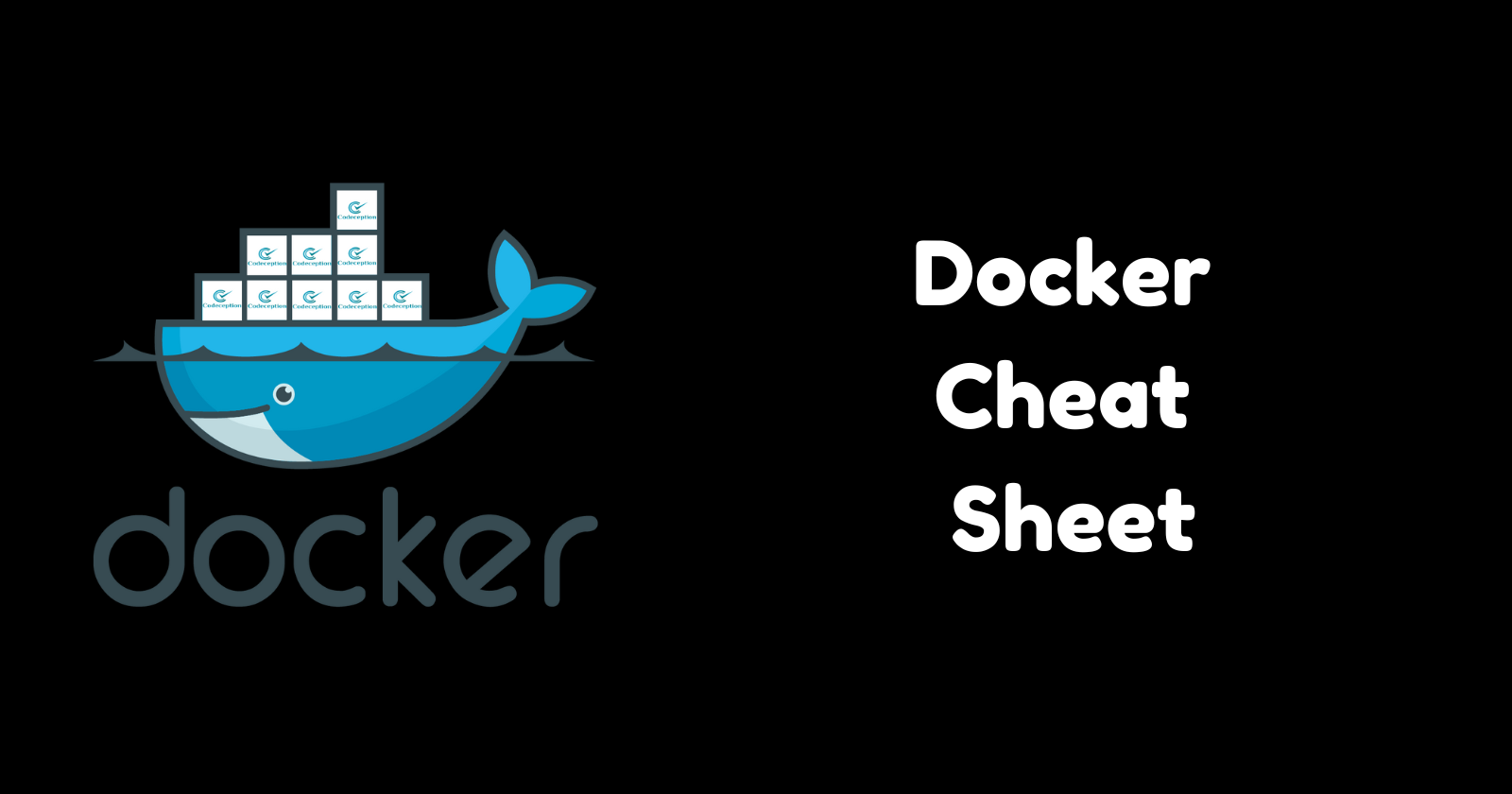Docker Cheat Sheet
 Rajat Chauhan
Rajat Chauhan
COMMAND | USE |
sudo apt-get update | Update libraries |
docker ps | List running container |
docker ps -a | List all the container |
docker pull | pull an image from a registry |
docker push | Push an image to a registry |
docker images | List available images |
docker run | run a container from an image |
docker stop <container_ID> | Stop the running container |
docker restart <container_ID> | Restart the container |
docker start <container_ID> | Start the container |
docker pause <container_ID> | Pause the container |
docker unpause <container_ID> | Unpause the container |
docker rm <container_ID> | Remove a container |
docker rmi <image_ID> | Remove image |
docker kill <container_ID> | Send a signal to a container to stop it abruptly |
docker build | Build an image from a Dockerfile |
docker volume ls | List available volumes |
docker volume create <name> | Create volume |
docker volume inspect <name> | Show information of the volume |
docker volume rm | Remove the volume |
docker network ls | List all docker network |
docker network create <name> | create new network || user defined bridge |
docker network connect | Connect a container to a network |
docker network disconnect | Disconnect a container from a network |
docker port | Show mapped ports of a container |
docker logs | Show the logs of a container |
docker exec | execute a command inside a running container |
docker inspect | Show information about a container |
docker cp | Copy files between a container and the host |
docker commit | Create a new image from a container's changes |
docker login | Log in to a registry |
docker logout | Log out of the registry |
docker tag | Tag an image with a new name |
docker export | Export the contents of a container as a tar archive |
docker import | create a new image from a tar archive |
docker save | save an image as a tar archive |
docker load | load an image from a tar archive |
docker top | show the processes running inside a container |
docker stats | show resource usage statistics of containers |
docker diff | show the changes made to a container's filesystem |
docker events | show the events generated by Docker |
docker history | show the history of an image |
docker wait | wait for a container to exit and return its exit code |
docker attach | attach to a running container's console |
docker buildx | build and push multi-platform images |
docker compose | manage multi-container applications with Docker Compose |
docker swarm | create and manage a cluster of Docker nodes |
docker system prune | create and manage a cluster of Docker nodes |
docker system df | show the usage of Docker objects |
docker system events | show the events generated by Docker on the system |
docker system info | show the system-wide information about Docker |
docker system inspect | show detailed information about Docker objects |
docker system logs | show the system logs of the Docker |
docker system version | show the version of Docker installed on the system |
Subscribe to my newsletter
Read articles from Rajat Chauhan directly inside your inbox. Subscribe to the newsletter, and don't miss out.
Written by

Rajat Chauhan
Rajat Chauhan
Rajat Chauhan is a skilled Devops Engineer, having experience in automating, configuring, deploying releasing and monitoring the applications on cloud environment. • Good experience in areas of DevOps, CI/CD Pipeline, Build and Release management, Hashicorp Terraform, Containerization, AWS, and Linux/Unix Administration. • As a DevOps Engineer, my objective is to strengthen the company’s applications and system features, configure servers and maintain networks to reinforce the company’s technical performance. • Ensure that environment is performing at its optimum level, manage system backups and provide infrastructure support. • Experience working on various DevOps technologies/ tools like GIT, GitHub Actions, Gitlab, Terraform, Ansible, Docker, Kubernetes, Helm, Jenkins, Prometheus and Grafana, and AWS EKS, DevOps, Jenkins. • Positive attitude, strong work ethic, and ability to work in a highly collaborative team environment. • Self-starter, Fast learner, and a Team player with strong interpersonal skills • Developed shell scripts (Bash) for automating day-to-day maintenance tasks on top of that have good python scripting skills. • Proficient in communication and project management with good experience in resolving issues.